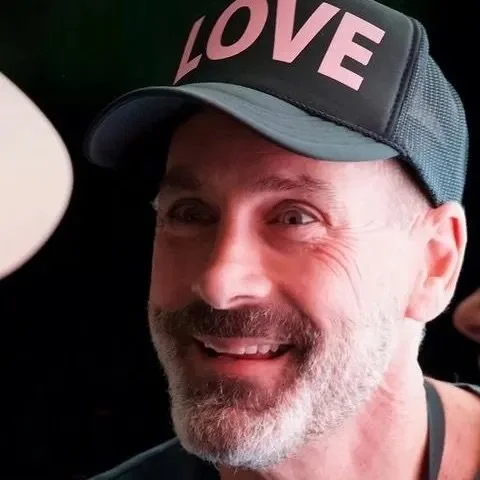How Justice Served Coffee Brews Second Chances Into Ownership
Justice Served Coffee is a for-profit platform designed to help formerly incarcerated people build pathways to business ownership.
Rob Kramer grew up in Pittsburgh, the son of an entrepreneur who ran a couple of furniture stores in the city’s Black and brown neighborhoods. What struck him most as a boy wasn’t the furniture itself, but the way his father treated people. “I’ve never met a man who treated every human being, no matter how wealthy or poor they were, exactly the same way — with humor and a huge heart,” Kramer recalls.
Rob Kramer, Founder of Justice Served Coffee
That lesson in dignity and hustle would stay with him for life. Decades later, it became part of the inspiration behind his newest venture: Justice Served Coffee, a for-profit platform designed to help formerly incarcerated people build pathways to business ownership.
Kramer had already lived many professional lives — building and selling startups, working in climate tech, and leading international water projects from Bangladesh to Haiti. But he admits his curiosity has always been the great driver of his life. “Entrepreneurs have to have great curiosity in building businesses and new ideas,” he says. That curiosity pulled him into volunteering inside prisons with Defy Ventures and Freedom to Choose.
There, he met men in maximum-security facilities who were working their way down to medium security through consistent self-improvement. Later, through Homeboy Industries in Los Angeles, he met people who had reentered society successfully. And again and again, he heard the same frustration: “They get to a place where they’re making $25 or $30 an hour — the more successful ones. But no one was willing to take a risk on them as entrepreneurs.”
That contrast gnawed at him. “As an entrepreneur who’s been at this for over 25 years, people take financial and social capital risks on me all the time. Many times I’ve won, and a few times I’ve lost. But they’ll take the chance again because of my track record, and also because, let’s be frank, I’m a white, educated man.”
He started looking for a platform that could support people on the margins — particularly those coming out of prison — to become business owners. “I couldn’t find anything — not a single platform out there,” he says. What began as a side project quickly became something bigger. “The deeper I got into it, I thought: imagine if we had a pathway to business ownership. That is the only way you create wealth.”
From Jobs To Ownership
Justice Served Coffee offers exactly that pathway. People come in first as employees, then move into an entrepreneurship-in-training program, and finally transition into a managed-to-own track. “You can’t teach hustle,” Kramer says. “But you can teach business ownership and the fundamentals of it.”
Coffee was chosen deliberately. “The reason for coffee originally is because it’s community, it’s culture, it’s coffee, it’s content,” he explains. The model combines flagship brick-and-mortar cafés with beautifully designed robotic micro-cafés that, he says, “can generate about $350,000 to $400,000 a year and clear around $150,000.”
Halim Flowers
What makes the model distinctive is that it’s entirely for-profit. “Completely for-profit — straight S-corp,” Kramer explains. “Each individual unit is an LLC. Think of it like real estate in a building — it’s an LLC, fully for-profit.”
“I think that what I love about what Rob is doing with Justice Served is that he’s using a for-profit platform with a product that everyone loves, which is coffee, to create community and create commerce for social impact, but have commercial viability,” notes Halim Flowers, artist and author; founding advisor to Justice Served Coffee. who rebuilt his life after more than two decades incarcerated.
Why Chicago
Although he considered Los Angeles, Kramer decided the first launch would happen in Chicago. “Chicago has been known as the murder capital. It’s also the exoneree capital,” he says. He believes that starting with exonerees — people who were wrongfully convicted and later freed — creates a powerful narrative. “No one can argue against supporting them, and their stories help shift the conversation for everyone else who deserves a chance.”
A Name From A Dream
The name Justice Served Coffee came to Kramer in an unexpected way. “I dreamt it,” he says simply. One night he saw both the words and the outline of the model in a dream. “I woke up and said it out loud. My wife asked what it was, and I told her I didn’t know — but I knew I had to pay attention.”
What started as a dream soon became a brand. He put it on hats, shared it with friends, and began developing the model in earnest. Today, the company is preparing to raise $2.5 million to launch its first café and micro-cafés in Chicago - and partner with values-aligned brands and companies to help scale and accelerate their mission.
Importantly, Kramer is clear about what Justice Served Coffee is not. “Our job isn’t to sell this whole thing to private equity or have someone flip it to Starbucks,” he says. “It’s to create a flywheel that generates liquidity for the owners. Having looked at the numbers, we could have a thousand of these operating today and still not scratch the surface of the potential.”
@Justice Served Coffee
Redefining Justice
For Kramer, this venture is about more than selling coffee. It’s about honoring the values he grew up with, and extending them into a part of society that has been systematically shut out. He has seen firsthand that many of the people coming out of prison already possess the drive, creativity, and resourcefulness that make great entrepreneurs — what they often lack is the opportunity.
Justice Served Coffee is designed to give them what so few have had: a structured, scalable path to ownership. “In the world of the formerly incarcerated, generational wealth might not mean millions. It could mean $100,000. It could mean owning your own home. And that’s the goal and intention.”
At its core, Justice Served Coffee is both pragmatic and personal. It takes the hustle Kramer saw in prison classrooms and combines it with the humanity he saw in his father’s furniture stores. “You can’t teach hustle,” he repeats. “But you can teach ownership.”
And that, he believes, may be the most powerful form of justice of all.
At Conspiracy of Love, we help changemakers tell their most powerful stories — stories that inspire action, build movements, and create lasting impact.
Find out more about our Values-Driven Storytelling and GPS to Purpose workshops, and how we can help you scale your impact.




